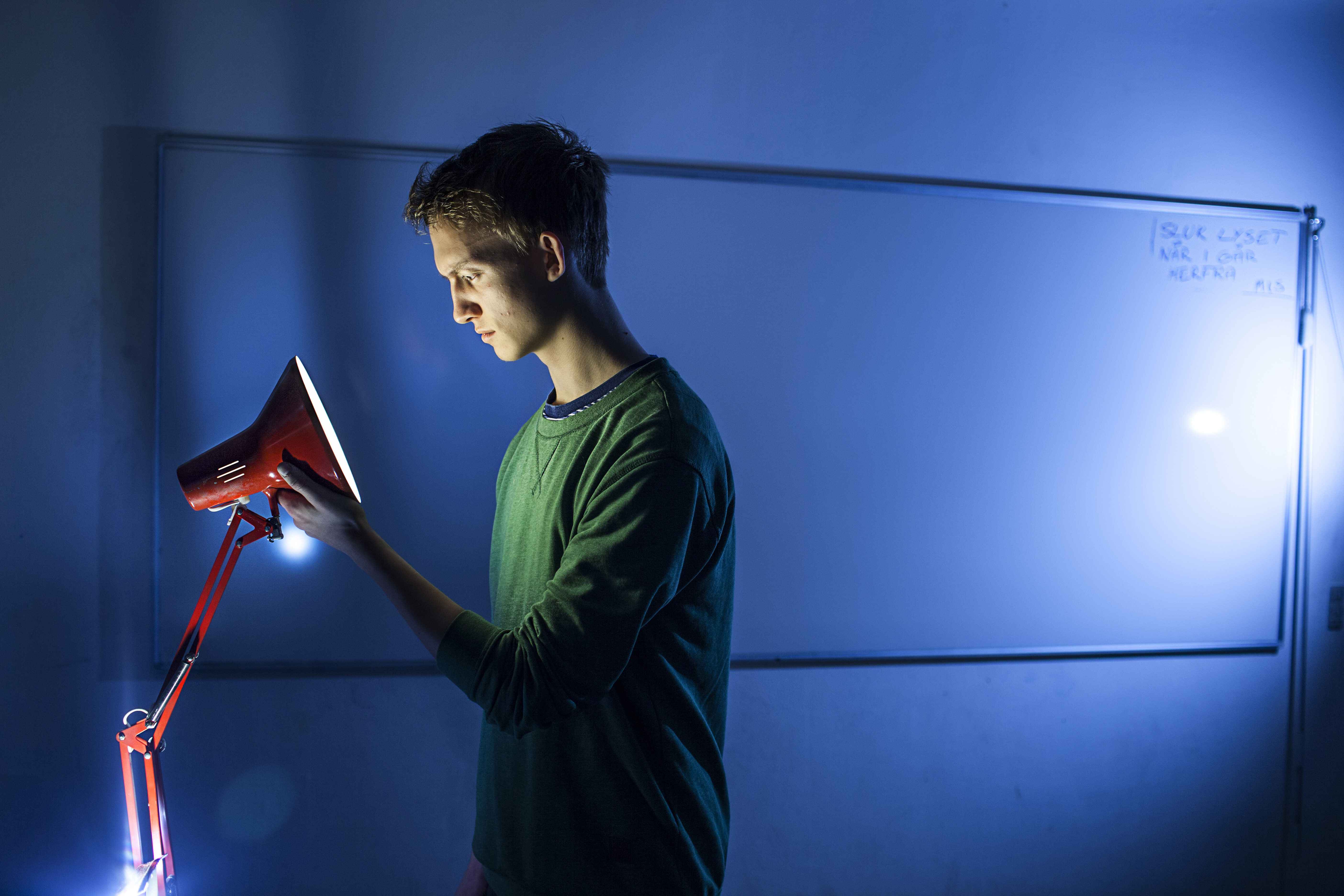“I like the idea of being a bit of an elite student”
Ever since September last year, students on Bachelor’s degree programmes looking for an extra challenge have had the chance to test their academic abilities on a special honours programme conducted parallel to their full-time studies at the Department of Physics and Astronomy.

19-year-old Andreas Michelsen started studying at AU this year after graduating with top marks from upper-secondary school in Ribe. His goal was clear: he wanted to study physics – “as much physics as possible to learn as much as possible about reality.”
Since then he has spent virtually all his time buried in textbooks in his room at a hall of residence in the University Park, or with a pendulum in his hand in the labs at the Department of Physics and Astronomy. In addition to his full-time studies, he’s attending an honours programme for students who are able and willing to cope with an extra academic challenge.
Better chance of a PhD
Even though Michelsen was hugely enthusiastic about his degree programme, he wasn’t sure about signing up for the honours programme when he heard about it during fresher’s week.
I wasn’t sure it would suit me because I didn’t know how easily I’d be able to cope with the ordinary degree programme. But when you’re used to being one of the top students at upper-secondary school, you tend to feel that you’d like to stay at the top at university, too. And I like the idea of being a bit of an elite student,” he says.
Took the plunge
He decided to take the plunge because the students attending the introduction were told that taking part in the honours programme would increase their chances of getting a PhD fellowship. He didn’t want to risk being left behind on the platform when the PhD train left the station.
Quite a lot of repetition
Once he got used to the level required on the ordinary degree programme, he had no regrets about his decision.
“I’d already studied physics at advanced level at upper-secondary school, so I was well prepared. But some of my classmates had studied the subject at a lower level. And I think there’s quite a lot of repetition.”
Demanding, intensive and challenging
By contrast, Michelsen uses words like “demanding”, “intensive” and “challenging” when talking about the honours programme.
"I study from the moment I get up until dinner time in the evenings. And then I do some more before watching an episode of some series on TV and then going to bed. I probably study for about 50 hours a week, but I try to relax at weekends,” he says.
He explains what keeps his fires burning:
“It’s fantastic to be allowed to develop your own potential – for instance, working on your own topic, writing an article about it in English, and then giving a presentation to the others in English. And it’s super-cool to be given responsibility: to be asked to work independently after all the group work we had to do in upper-secondary school.”
One of the four reports he’s written was returned to him with the mark “failed”. This was a new experience for him because he’s used to getting top marks.
“I worked on that report right up until 23 December, but in the end I just submitted it because I wanted to decorate the Christmas tree with my family.”
Wants to be a researcher one day
Andreas Michelsen wants to be a researcher one day. His father is a researcher at the University of Southern Denmark, so he knows how demanding this life can be.
“He works all the hours God sends. And he has to spend some of his time applying for funding for his research. But I think I’d be letting myself down if I didn’t at least try to achieve my goal. If all else fails, I can always be an upper-secondary teacher or prime minister, he smiles.
Translated by Nicholas Wrigley

